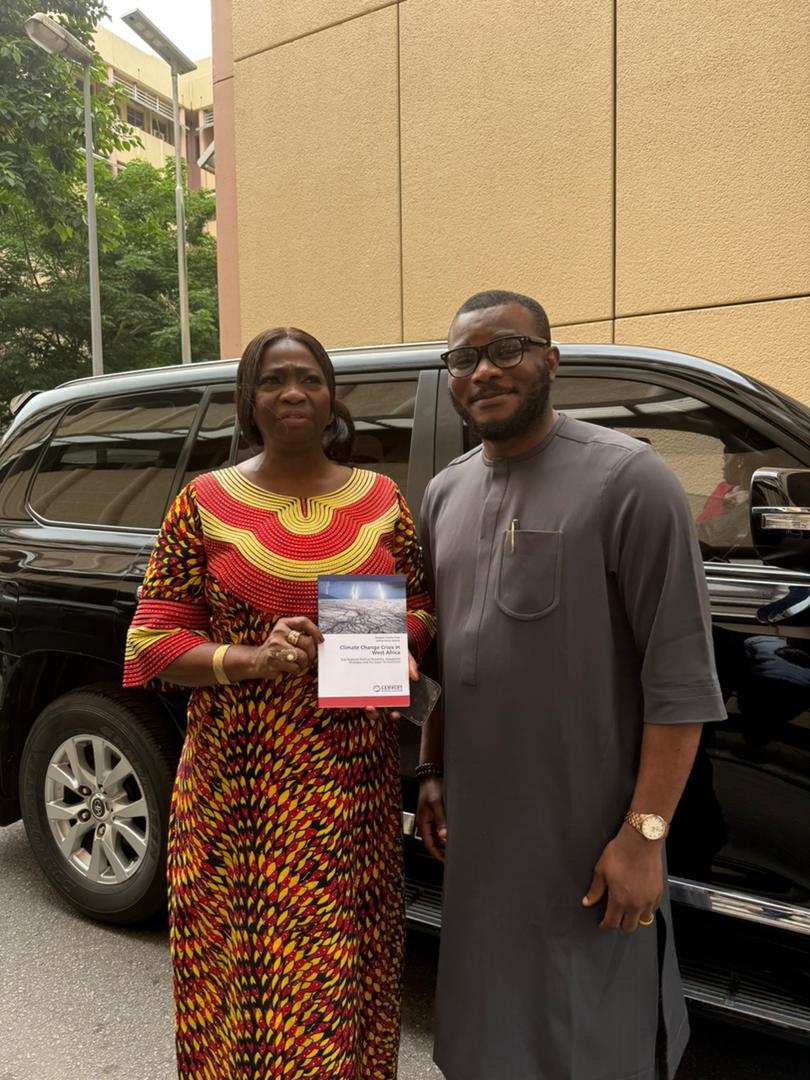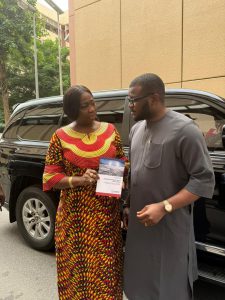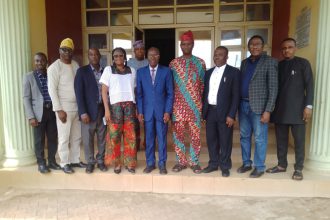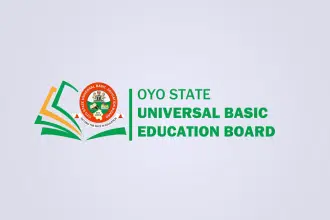The Chairman of the Nigerians in Diaspora Commission (NIDCOM), Abike Dabiri-Erewa, has received a copy of a newly released book on climate change, described by experts as one of the most timely and comprehensive works addressing the environmental crisis in West Africa.
The co-author, Gbolahan Charles Oloye, presented Climate Change Crisis in West Africa: Sub-Regional Political Dynamics, Adaptation Strategies, and the Quest for Resilience to Dabiri-Erewa during a courtesy visit to her Abuja office on Monday, August 11 2025. The visit was marked by warm exchanges on the role of the Nigerian diaspora in national development and the urgent need to tackle climate challenges with coordinated strategies.
Oloye, who co-wrote the book with Adetola Adekola, expressed gratitude to the NIDCOM boss for the commission’s work in championing the welfare and contributions of Nigerians living abroad.
He commended her for efforts being put into the role and how she was addressing issues related to Nigeria living abroad.
“We deeply appreciate the enabling platform NIDCOM continues to provide for Nigerians in the diaspora. This book is also a call for them to engage more actively in shaping West Africa’s climate resilience policies,” he said.
The discussions touched on the capacity of Nigerians abroad to drive innovation and environmental solutions if given the right opportunities. “When our people are equipped and supported, they can compete and excel anywhere in the world,” Dabiri-Erewa remarked, while commending the authors for producing a work that blends science, politics, and advocacy.
Climate Change is a Regional Emergency
The book’s core thesis frames climate change not just as an environmental problem, but as a profound political, economic, and social challenge. With West Africa already experiencing severe climate shocks, ranging from desertification in the Sahel, to intensified flooding in coastal cities, to unpredictable rainfall patterns affecting food security, the work highlights the urgency of coordinated sub-regional action.
Gbolahan Oloye had earlier noted that Climate Change Crisis in West Africa “offers a scaffolding for deeper inquiry, richer engagement, and more equitable adaptation.” By weaving together technical adaptation strategies with the political realities of governance in West Africa, the authors challenge leaders to confront what they call “uncomfortable truths” about decision-making, resource allocation, and accountability.
According to the United Nations, climate change is set to push millions more West Africans into poverty if urgent measures are not taken. The authors argue that adaptation strategies must be tailored to local contexts, backed by strong governance, and supported by inclusive policies that give a voice to vulnerable communities, particularly women, rural farmers, and urban poor populations often sidelined in climate negotiations.
The Diaspora’s Role in Climate Resilience
The meeting also explored how the Nigerian diaspora could contribute to climate solutions through knowledge transfer, investment in green technologies, and advocacy in global policy spaces. Oloye reiterated that many Nigerians abroad are already leading climate action projects and could play a stronger role in shaping West Africa’s sustainability agenda if more robust channels for engagement were established.
The book – Climate Change Crisis in West Africa arrives at a critical moment as global attention intensifies on climate finance, adaptation, and resilience in developing regions. The book invites policymakers, academics, and civil society actors to rethink climate response as both a scientific and political endeavour, insisting that without transparency, inclusivity, and urgency, technical solutions will falter.
Oloye expressed optimism about expanding the conversation beyond academic circles. “Climate change is everyone’s issue. Our goal is to take this dialogue to community leaders, policy forums, and media platforms so that resilience becomes part of West Africa’s identity,” he said.
The meeting ended with mutual agreement to continue the conversation and explore collaborative ways the diaspora can be part of Africa’s environmental transformation.










